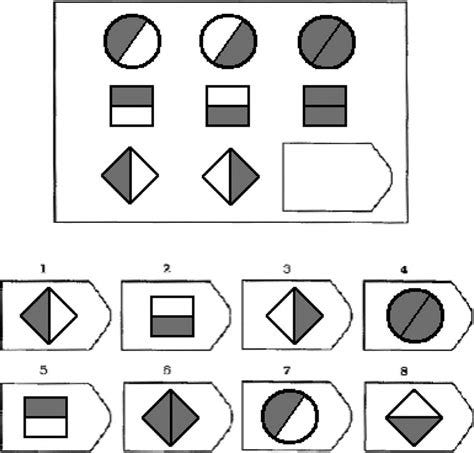What is a midwit?
Taking on an old concept
What makes man a rational animal is his cognitive faculty. In other words, man can think abstractly beyond what he can sense. Aristotle calls this ability subtraction, but for convenience we stick with the modern term.
Being wise means that one abstracts better than others, and that one can work with abstract concepts well. As Fr Garrigou-Lagrange writes, “why is it said that the wise man knows the most difficult things? It is… because he knows the first and most universal causes, which are the most difficult to know, for they are far above the level of sensible things, which are the first things that we know.”1
Since wise men exist, unwise men necessarily also exist. Hence some people have better abstract reasoning than others. This is not bad, for a division of labor between physically and intellectually stimulating tasks will happen. However, there are some people who fall in the middle.
Vox Day coined the word “midwit” to mean those with above average IQ yet also below genius level2. Whatever problems the IQ concept has, one cannot deny that midwits do exist, and they have a certain style of thinking. Let me give an extreme example: Suppose a midwit named Maurice was asked what would come next in this pattern.
Maurice would answer that “we cannot infer from repeated observations what will happen next!” He answers this for he has read about Hume’s Problem of Induction, and now knows better than the one who asked him this question. Unfortunately for Maurice, he was given a question from an abstract reasoning test, where patterns were designed to be reliable and repeated. His job was to use his brain to figure out the pattern, for abstract reasoning separates man from beast. Instead, he applied a completely different framework than what fit the situation.
I often say that midwits “focus on accidents over substances.” For those who don’t know philosophy, this simply means that midwits look at the surface level and jump to conclusions. Yet this phrase is wrong, for midwits not only focus on the surface level: they think that the surface level is a general truth. Take for example a former friend of mine. He thought that the word “fallow” was too deep for him. Therefore, Medieval farmers surely also didn’t use the word in their daily work - because my former friend thought it was too deep for him. Never mind that “fallow” is an agricultural word well-used by farmers, or that “fallow” comes from Anglo-Saxon, or that just because a word is deep for him, it doesn’t mean that it’s deep for others. My former friend went on to give typical excuses. “Yeah, but only smart literate farmers used that word.” “Yeah, but most people were too dumb to know that word.” Compare this to Uniqlo employees claiming that their wares were made in Japan, only to be told that the print says that they were made in China, then to wave it off as being of “Japan quality.” Midwitery is a pox that ruins friendships, and by extension societies.
One may see that many Millennials and their Zoomer followers glee in contradictory statements. “You’re just like me with my difficulties, so I’m nothing like you.” “I must be worthless without your looks or your talents. But if you can accept yourself for who and what you are, then you are cool and self-assured.” “You can do anything yourself as long as you don’t judge yourself or anyone else, because judging is bad. By the way, you are yourself, only if you wear the right clothes that reflect your own unique identity.”
From these examples, the reader can surely get an idea of how midwits act. In general, the midwit loves aphorisms and out-of-context quotes, thinking that they substitute as philosophy. This trait generalizes to a love for bureaucratic definitions, rules, and regulations. Midwits will point to Senate bills’ definition of terms, and they will think that the way the Senate uses words is how most people use words. Midwits especially love red tape, for it lets them squeeze their butts out of tight situations. They don’t want to exercise prudence or thinking, only to have convenient rules and regulations. This passivity in decision making extends to passivity in other areas of life: security, welfare, livelihood, etc. The overbearing welfare state is a midwit invention first and foremost.
Aristotle gives virtue as the cure for midwitery: virtue is not some hard rule of a middle ground between two extremes. Virtue is having both right reason and right desire that lets a man view a situation with clarity. To be virtuous is to make the right decisions for particular situations, to know when to apply rules and not just to follow them. Vox Day ends his essay on the midwit like so:
Genius is neither a state of being nor the possession of potential, it is the completion of material intellectual accomplishment. Mozart had enormous musical gifts, but even such a prodigy would not have been a genius had he not troubled to take the time and effort required to compose his music. Newton had one of the most astonishing minds ever possessed by man, but he would not have become one of the most awe-inspiring geniuses of history had he never stopped to think about his casual observations of the material world. Genius is not born, it is self-created.
I suggest that before you can reach a place that requires effort, you must first realize that you are not already there.
Reginal Garrigou-Lagrange, OP. The Sense of Mystery: Clarity and Obscurity in the Intellectual Life. Emmaus Academic, 2018.
https://voxday.net/2012/02/17/tragedy-of-mid-witted/



